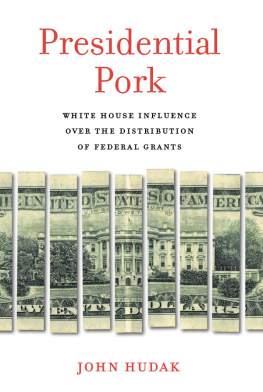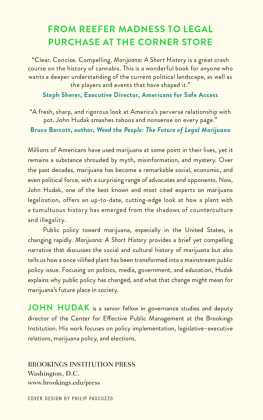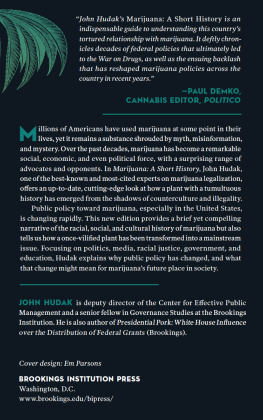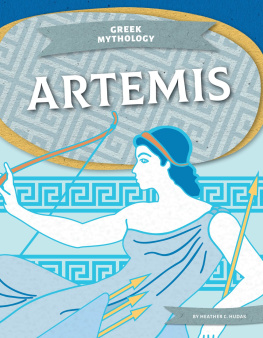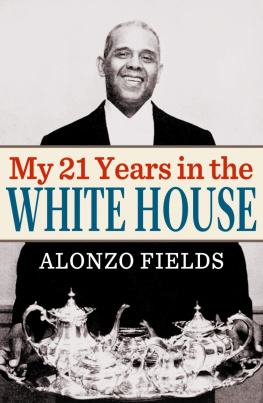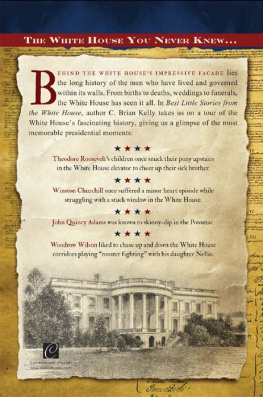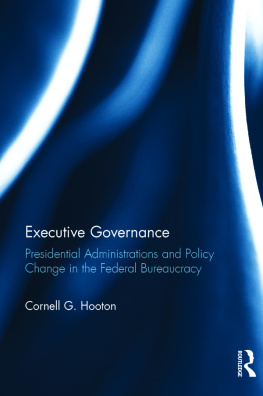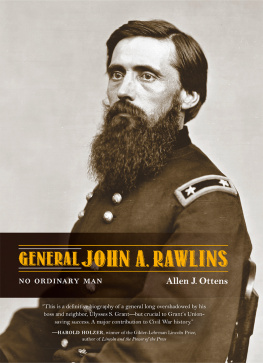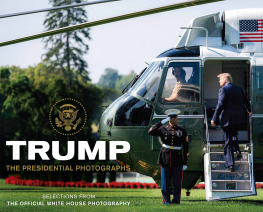ABOUT BROOKINGS
The Brookings Institution is a private nonprofit organization devoted to research, education, and publication on important issues of domestic and foreign policy. Its principal purpose is to bring the highest quality independent research and analysis to bear on current and emerging policy problems. Interpretations or conclusions in Brookings publications should be understood to be solely those of the authors.
Copyright 2014
THE BROOKINGS INSTITUTION
1775 Massachusetts Avenue, N.W., Washington, D.C. 20036
www.brookings.edu
All rights reserved. No part of this publication may be reproduced or transmitted in any form or by any means without permission in writing from the Brookings Institution Press.
Library of Congress Cataloging-in-Publication data
Hudak, John Joseph.
Presidential pork : White House influence over the distribution of federal grants / John Hudak.
pages cm
Includes bibliographical references and index.
ISBN 978-0-8157-2520-6 (pbk. : alk. paper)
1. Grants-in-aidUnited States. 2. Executive powerUnited States. 3. United StatesAppropriations and expenditures. 4. Government spending policyUnited States. 5. PresidentsUnited StatesDecision making. I. Title.
HJ275.2.H84 2014
336.3'9dc23 2013048161
9 8 7 6 5 4 3 2 1
Printed on acid-free paper
Typeset in Adobe Garamond
Composition by Cynthia Stock
Silver Spring, Maryland
Printed by R. R. Donnelley
Harrisonburg, Virginia
Acknowledgments
I could probably double the size of this work if I devoted the space necessary to those who deserved an acknowledgment. I realize that at every stage of my life and my career I stand on the shoulders of those who came before me and those around me. A force in American politics for whom I have the greatest respectHillary Rodham Clintononce titled a book It Takes a Village. Secretary Clinton, though focused on a much more critical issue, could easily have applied that title to the development of a research project. This project came about because of some of the most caring, talented, patient, and understanding villagers, and it reflects their character as much as it displays my own work. Below, I shall insufficiently tip my hat.
Presidential Pork, begun when I was at Vanderbilt, is due substantially to the guidance, training, support, and time of Dave Lewis. The ideas and originality in this book, while my own, were nurtured by his efforts. His always welcomed (even though occasionally stressful) critique, feedback, suggestions, and revisions contributed substantially to my writing, and I cannot even imagine the book without this valued guidance. As a mentor and a friend, he helped to ensure this work was of high quality. My success as a scholar has been and will be due in large part to his role.
In addition to Dave, other colleagues at Vanderbilt supported this project in ways for which I will be eternally grateful. Bruce Oppenheimer, John Geer, Josh Clinton, and Kevin Stack provided insightful comments. Suzanne Globetti and Marc Hetherington helped to improve my work and level my sanity during different periods of my career. My positive experience in the Department of Political Science was due in large part to the leadership of Neal Tate. I cannot adequately put into words what a force and a role model Neal was to the department and to me personally. His death was a loss to the department, to the university, to the discipline, and I am fortunate to have worked with him. I am grateful to have had the opportunity to call him and others named here colleagues.
This research was supported by the National Science Foundation, the Vanderbilt University Social Science Dissertation Fellowship, the Vanderbilt University Graduate School and Department of Political Science, the Center for the Study of Democratic Institutions, and the Brookings Institution. I have also received incredibly helpful feedback at conferences and elsewhere from Larry Bartels, Matthew Beckmann, John Gasper, Laurel Harbridge, Jon Hiskey, Cindy Kam, George Krause, Andrew Reeves, Bert Rockman, Mitch Seligson, Zeynep Somer-Topcu, Justin Vaughn, Adam Warber, Alan Wiseman, and the participants in the Conference on Federal Spending, hosted by Nate Monroe (University of CaliforniaMerced).
I would be remiss if I did not thank the tremendous and careful feedback from Katie Dunn Tenpas and Brandon Rottinghaus. This book is much improved by their detailed suggestions and recommendations. I owe them a debt of gratitude, as does every individual who reads this book, for making the journey from cover to cover a smoother one.
I must also thank the individualswho must remain namelesswho agreed to be interviewed for the portion of the research that ultimately became of this book. Their time, information, and expertise proved profoundly insightful and aided dramatically in this contribution. They taught me much about the executive branch of American government, but also how to deal with the personalities and characters that populate the Washington establishment.
Beyond the formal and faculty acknowledgments of support and assistance for this project, I have a host of others who have helped me immensely. Virginia Hettinger made sure that an undergraduate at the University of Connecticut was prepared, confident, and eager to become a social scientist. While many people helped along the way, I can surely say Virginia is singularly responsible for starting me on that path.
As this project was conceived and grew, I had the privilege of working alongside peers and colleagues who have made my life as a researcher more enriching. Specifically, Stacy Clifford, Evan Haglund, Jason Husser, Grace Jensen, Gbemende Johnson, Mason Moseley, Carrie Russell, Jen Selin, and Steve Utych have been incredible colleagues with whom I am lucky to have worked.
This book began during my time at Vanderbilt and was completed at the Brookings Institution. I would be remiss if I did not thank my colleagues in Governance Studies who helped along the way, including Darrell West, Sarah Binder, Stephanie Dahle, Christine Jacobs, Elaine Kamarck, Tom Mann, and Phil Wallach. I am also indebted to the research assistance of Ashley Gabriele, Grace Wallack, Lucy Arnold, and Brian Boessenecker.
A few other friends and colleagues have helped me in ways that deserve specific acknowledgment. Jennifer Anderson and Jenna Lukasik always provided advice, support, feedback, coffee breaks, and conference experiences, and their friendship kept me sane as Presidential Pork matured. Jennifer also showed me how laborious a research project can be and truly put my own into perspective.
Sarah Hinde Case provided feedback, friendship, and help whenever I needed it. Whether our daily conversations involved politics or policy, daily events or distractions, work or wine, she has been a dear friend, a source of enormous support, and I surely would not have crossed the finish line without her.
Brian Faughnan has read as much of this book as anyone. His ability to show (or at least feign) interest in this project is impressive. Many of the ideas in this book have been developed, expanded, and refined through casual and formal conversations, constant trips for coffee, and occasional libations. Brian has been a great friend and colleague and someone to whom I am greatly indebted.
I depend on the support of an incredible family that has supported me over time and is responsible for my becoming the person and scholar I am today. Mom, Dad, Gram, Aunt Peg, Uncle Diz, Michelle, and Tennessee parentsSam and Suehave been incredible forces in my life and I owe them everything. They are among the most important members of my village, and I am fortunate to have each of them in my life.

